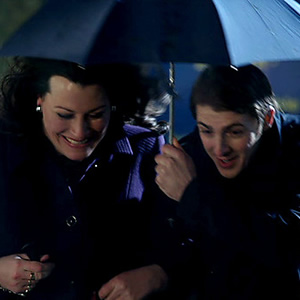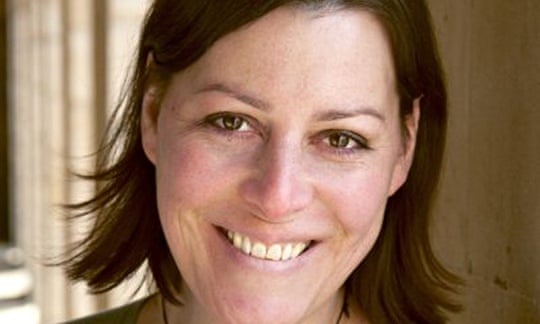Notifications
I was privileged yesterday to go and watch one of the first screenings of the BBC's new SitCom, Boy Meets Girl, coming to our screens in September/October.

The show was the winner of a competition run by the BBC in 2012 to find a trans inclusive sitcom for mainstream broadcasting.
First off, this isn't a SitCom - it's a Romantic Comedy Drama. Or, using the same nomenclature as caused the food labelling industry to rename Meat and Potato Pie to Potato and Meat due to the ratios, this is a Romantic Drama Comedy. Another term commonly used when a sitcom isn't rip roaringly funny is Gentle Comedy.
This doesn't detract from the quality of the show, which is very good. The actors, stand-up, drama teacher Rebecca Root (Judy) and Harry Hepple (Leo) from Misfits, play their characters very well, as do the supporting cast though Leo's brother is going to grate very quickly. The families are well envisaged, and work well, with a good dynamic.
The story itself follows Leo, and how he meets and falls in love with Jude.
Jude happens to be a post-op transsexual.
And this is where my problems with the show start.
The trans character Judy is a mirror for Leo's and others' reactions to a transgender person. From the first show (I've not seen the rest, but will watch them), it would appear that the issues of being transgender are not examined at all. For all the BBC's lauding of their first transgender sitcom, I think they have failed. This is told from a cis perspective, and so far apart from mentioning that Judy is trangender, it has concentrated on how LEO would react. Essentially, Judy is a woman, and treated as one by the story. Which is what she is, but it's not examining trans issues, is it?

Secondly, the trans community is vast and varied. All of the shows with trans characters, such as Orange is the New Black, Transparent, Helen's Story (on Cucumber, Banana, Tofu) and now Boy Meets Girl are about post-op transsexual women. Those in the community know that life is hard for post-op transsexual women. Dating, working, friendships, etc. Difficult. But we also know that they make up a tiny percentage of trans.
A TINY percentage.
The general public are starting to 'get' transsexualism. Trapped in the wrong body? Birth gender doesn't match actual gender? Fine, that's almost understandable to people. The husband who needs to wear women's clothing occasionally, the people who want to present in a gender disparate from their assigned birth gender, but have no intention of ever transitioning, bigender, gender fluid, trans men...none of these are covered. At all. They don't get a mention. And it's these people the general population need to be exposed to, so that they too can live authentic lives.
And Rebecca, for all her outstanding acting ability, is 100% passable. Away from screen she's a drama teacher, a voice coach and a stand up comedian. Unless she chose to tell somebody, they would never guess she's trans at all. I'm not passable. People know within seconds of meeting me that I'm trans. It helps that I'm transsexual too, because those I meet understand this a bit. But for those of us who aren't either passable or full time, the understanding vanishes.
Any show that is going to examine what it is to be trans and educate people in trans issues HAS to look at the community as a whole. The message that the twice a year hotel room cross dresser is just as valid as somebody living their life as the gender they are rather than that which was given to them, even if they still look like a man. Even if they still talk like a man. Even if they spend the vast majority of their lives as a man.
There are tens of thousands of cross dressers who live in fear of being found out in the UK alone. If they and their partners, friends, co-workers could see that there is nothing more shameful about enjoying exploring a side of themselves opposite that of their assigned gender than there is playing golf, or watching Bruce Lee movies, how much richer would their lives be? How much safer?
Boy Meets Girl was conceived through a conscious effort on behalf of the BBC to expand diversity and acceptance of the trans minority group. They had a competition, they selected ten scripts to act out, two to make into pilots, and this show won. Yes, it is very well written, acted and directed, but it has failed in it's original remit.
The writer, Elliot Kerrigan, admitted that the only trans research he did was to watch a movie (unspecified) and read a book (also unspecified). He had help from veteran screen writers Simon Carlyle and Andrew Mettam, and there was input from Claire Parker, a trans woman and trans advocate. Additionally, Rebecca herself also had an input to ensure that the trans character was portrayed sympathetically and accurately. At no point did any of these people realise how sidelined the trans situation is in the show. If you cut one scene of approximately 2 minutes in length, then you would assume this is a sitcom about a relationship with an age gap.
Perhaps I'm doing it a disservice, perhaps more issues will be explored in future episodes, but from what was said in the seminar, it won't.
Don't let the lack of exploration of the trans world put you off - this is a good show and it deserves to do well, but I for one will scoff whenever the BBC claim this is a trans vehicle. It absolutely is not.
May 14, 2015- -
-
1 likes this
- -
-
Report
May 14, 2015- -
-
1 likes this
- -
-
Report
May 14, 2015- -
-
1 likes this
- -
-
Report
May 14, 2015- -
-
Report